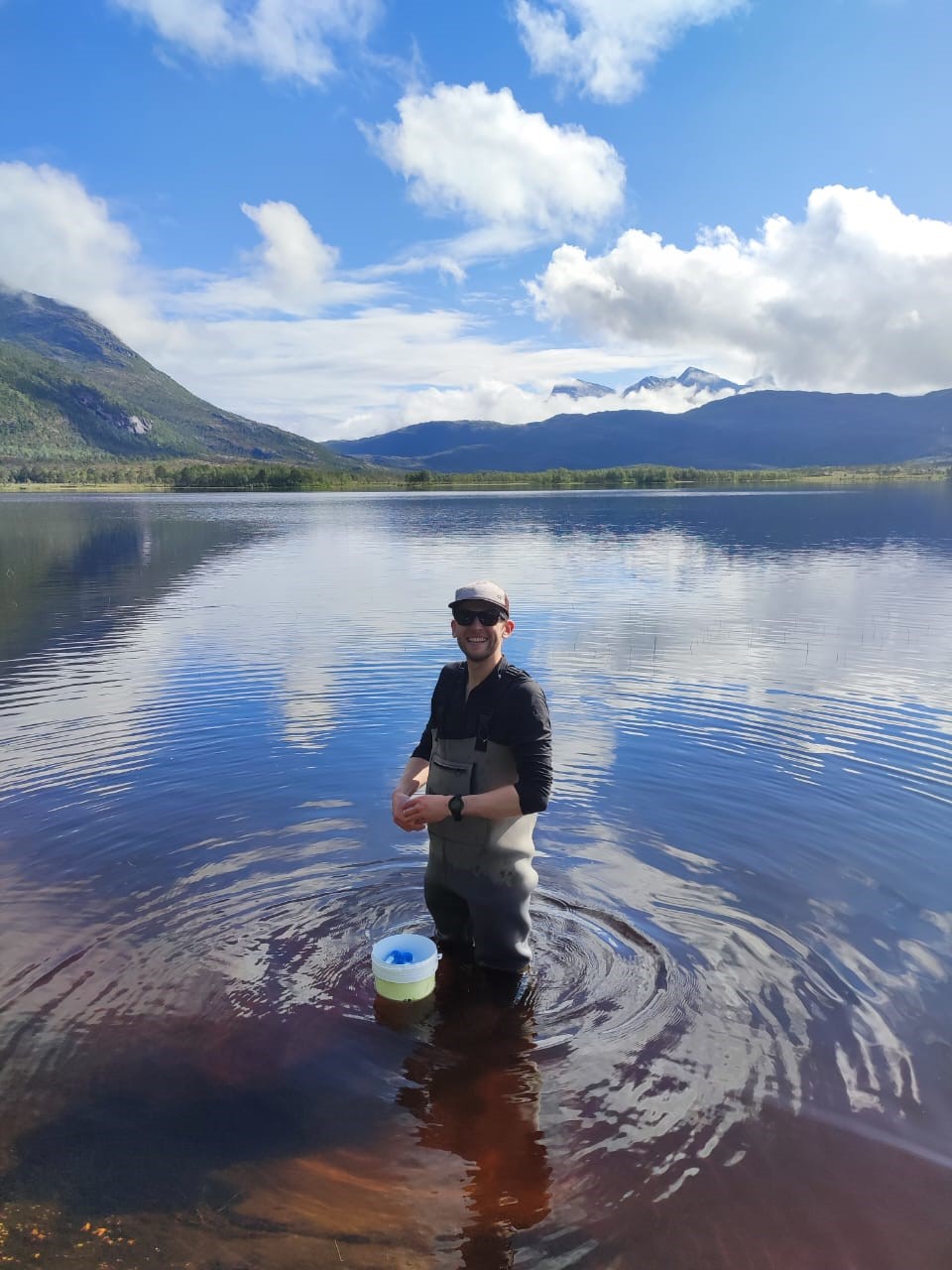
I have only recently caught the ecological genomics bug! During high school I became interested in how foreign substances (whether it be pollutants, medication, or addictive substances) affect biological activity. I took a Bachelor of Arts & Sciences at Quest University in British Columbia, Canada. Here, I wrote my thesis on drug- and behavioral addictions in humans. During my time there, I had to take some introductory ecology courses which gave me my first taste of field work. I also spent my summers and off-time working as a white-water rafting guide and outdoor nature guide. Working alongside migrating salmon, black bears, lynx, coyotes, bald eagles in the field instilled in me a fascination for ecosystems and the interactions between humans and nature. I therefore decided to change directions slightly for my master’s degree and chose to study the effect of foreign substances on ecosystems and natural populations instead.
At Nord University, I am studying the effects of mercury and heavy metal pollution on three-spined stickleback populations in Flanders (Belgium) and Nordland (Norway). Broadly, my goal is to better understand how mercury pollution affects natural populations in various ways. Specifically, I am comparing the effect of mercury on the gut microbiomes of sticklebacks from three major river systems in Flanders. I am also involved in coordinating a field work project during which we are visiting 21 lakes across Nordland to better understand the spread of mercury across the North Norwegian freshwater landscape.
In my spare time I like to roam around outside in the mountains on skis, by bike, on foot, or on hands and feet (i.e., rock climbing) with friends, my girlfriend, my dog, or by myself.